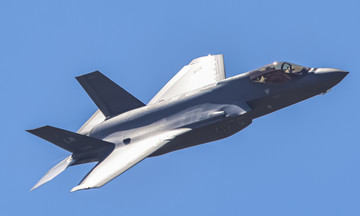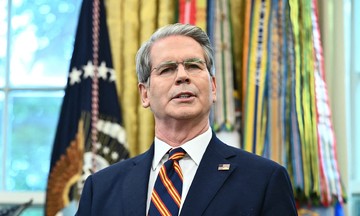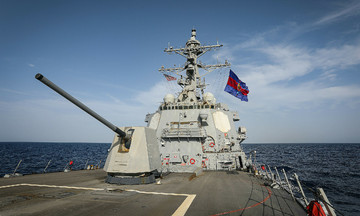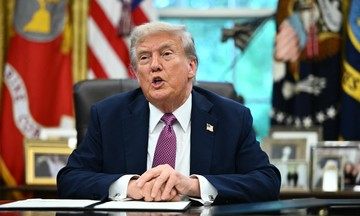On 5/9, President Donald Trump signed an executive order to rename the U.S. Department of Defense the Department of War. This marked his 200th executive order since taking office.
"The name 'Department of War' will send a stronger message of resolve and combat readiness than 'Department of Defense,' which merely emphasizes defensive capabilities," the executive order stated.
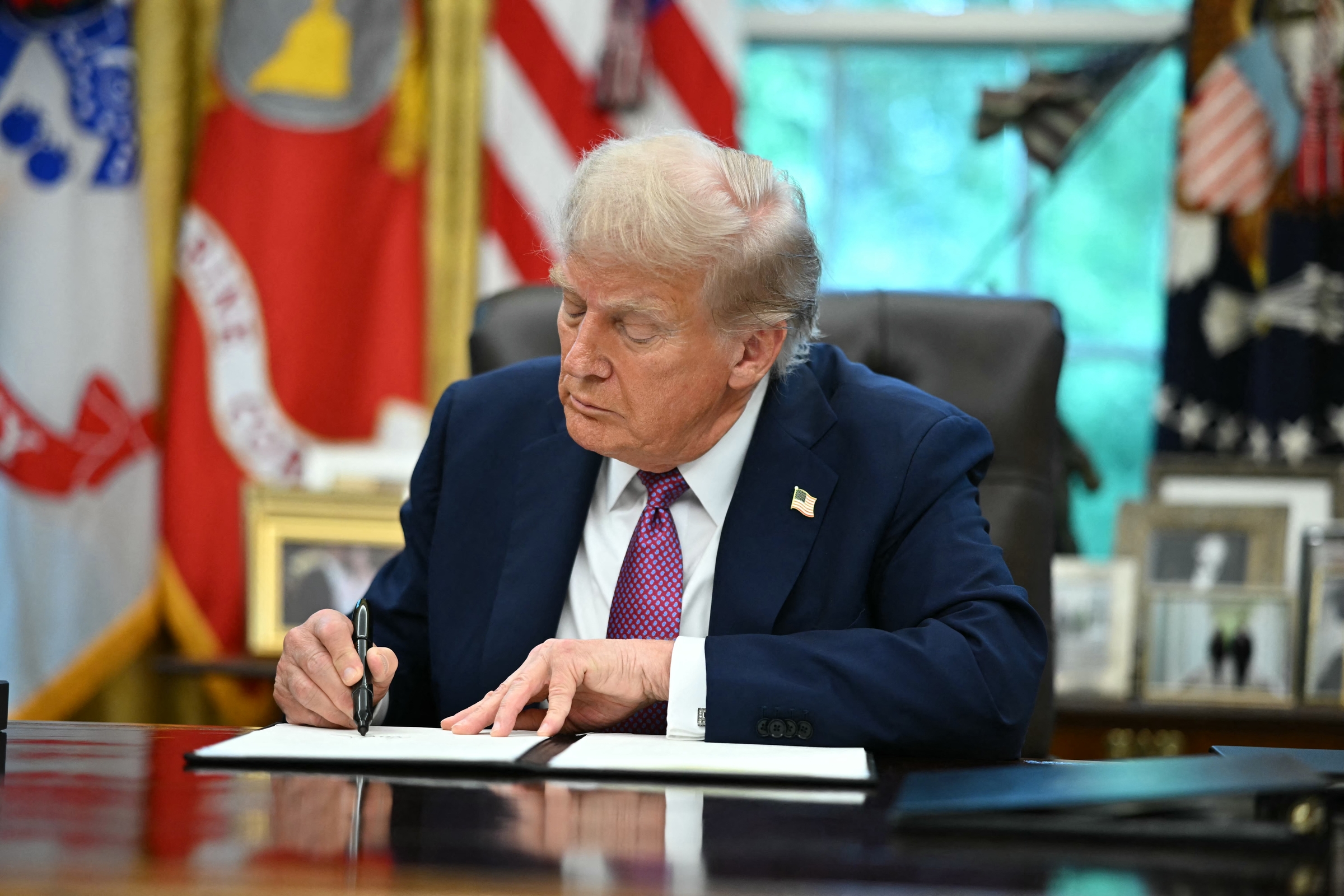 |
President Donald Trump signs the executive order at the White House on 5/9. Photo: AFP |
President Donald Trump signs the executive order at the White House on 5/9. Photo: AFP
The executive order directed Secretary of Defense Pete Hegseth to propose the necessary legislative and executive actions to formally adopt the name change, acknowledging that Trump couldn't unilaterally rename a department without congressional approval.
The establishment of executive branch agencies falls under the purview of Congress. Therefore, any changes to their names require a congressional resolution.
Despite this, Trump's order permits the Secretary and Deputy Secretary of Defense to use the subsidiary titles "Secretary of War" and "Deputy Secretary of War" under the Department of War.
This move underscores Trump's efforts to reshape the military to align with his objectives. Through the name change, he seeks to evoke a powerful image and convey America's readiness to act decisively with military force in the face of any challenge.
George Washington, America's first president and founding father, established the Department of War in 1789 to manage the army. In 1798, President John Adams established the Department of the Navy to oversee the navy and marine corps.
This military structure remained in place until 1947, two years after World War II. President Harry Truman then signed the National Security Act, merging the War Department, the Navy Department, and the newly formed Air Force into the National Military Establishment, led by a civilian official.
Truman's stated goal was to "unify the armed forces under a single department" and not place any branch under another. In 1949, he renamed the National Military Establishment the Department of Defense.
Richard H. Kohn, professor emeritus of military history at the University of North Carolina, suggests Truman's renaming reflected the Department of Defense's expanded responsibilities, including combat, foreign policy, intelligence, and, above all, national security.
"In the early nuclear age, the new name also conveyed a desire to avoid war," Kohn said. "Clearly, the renaming wasn't due to political constraints but aimed to signal to the world that America wasn't warmongering, prioritized defense, and, if necessary, would have four forces engaged in combat".
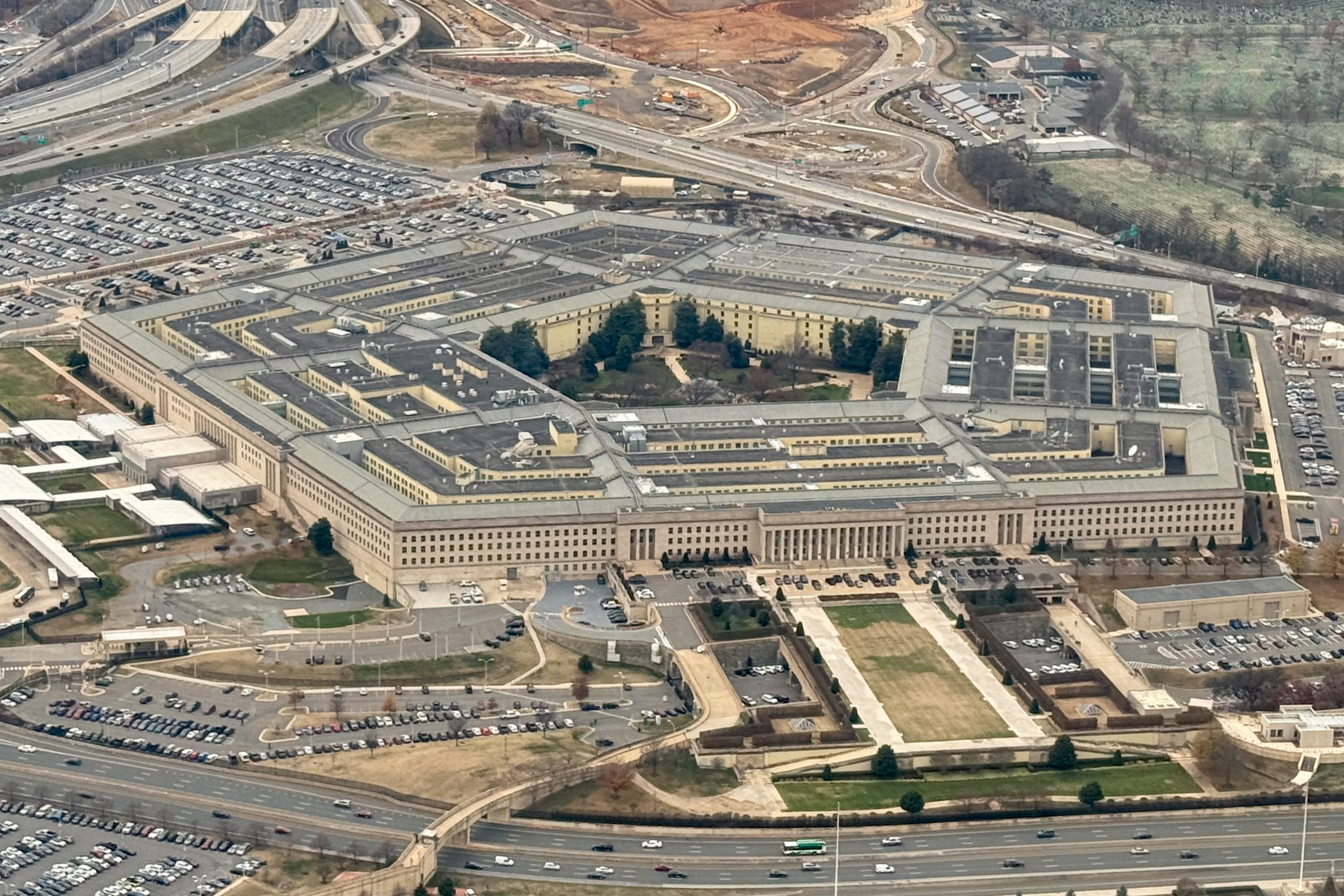 |
The U.S. Department of Defense building in Washington, D.C. Photo: AFP |
The U.S. Department of Defense building in Washington, D.C. Photo: AFP
Since the start of his second term, Trump has increasingly sought to expand the military's role both domestically and internationally. He ordered airstrikes on Iranian nuclear facilities, dispatched navy warships to attack "narco-submarines" off Venezuela, and deployed the National Guard to various U.S. cities to combat crime.
Trump first floated the idea of reverting to the Department of War name in late August, arguing it would evoke America's past military victories.
"The Department of Defense used to be called the Department of War, a much stronger name. As you know, we won World War I, World War II. And now we have a Department of Defense, with defenders," Trump stated at the White House on 25/8.
Trump later claimed the name change to the Department of Defense was due to "political correctness," a term often used to describe language, policies, or measures intended to avoid offending certain groups.
According to the president, the term "defense" implies passivity. He wants America to be "not just defensive, but also on the offensive if compelled to act".
"The U.S. military is the strongest and most battle-ready force in the world. The president believes the Department of Defense should have a name that reflects its unmatched power and resolve to protect American interests," a White House statement read.
Trump and Hegseth also argued that the Department of Defense had become overly focused on "woke ideology," particularly diversity, equity, and inclusion (DEI) programs. Conservatives view DEI as a left-wing ideology with inappropriate content regarding race, gender, or politics.
According to the Trump administration, this has undermined military morale and mission under former President Joe Biden. Hegseth stated that transforming the Pentagon into the Department of War "is not just a change in words but a reflection of warrior spirit".
This change seems somewhat at odds with Trump's stated military goal of "peace through strength" but aligns with his "Make America Great Again" slogan, The Times commented.
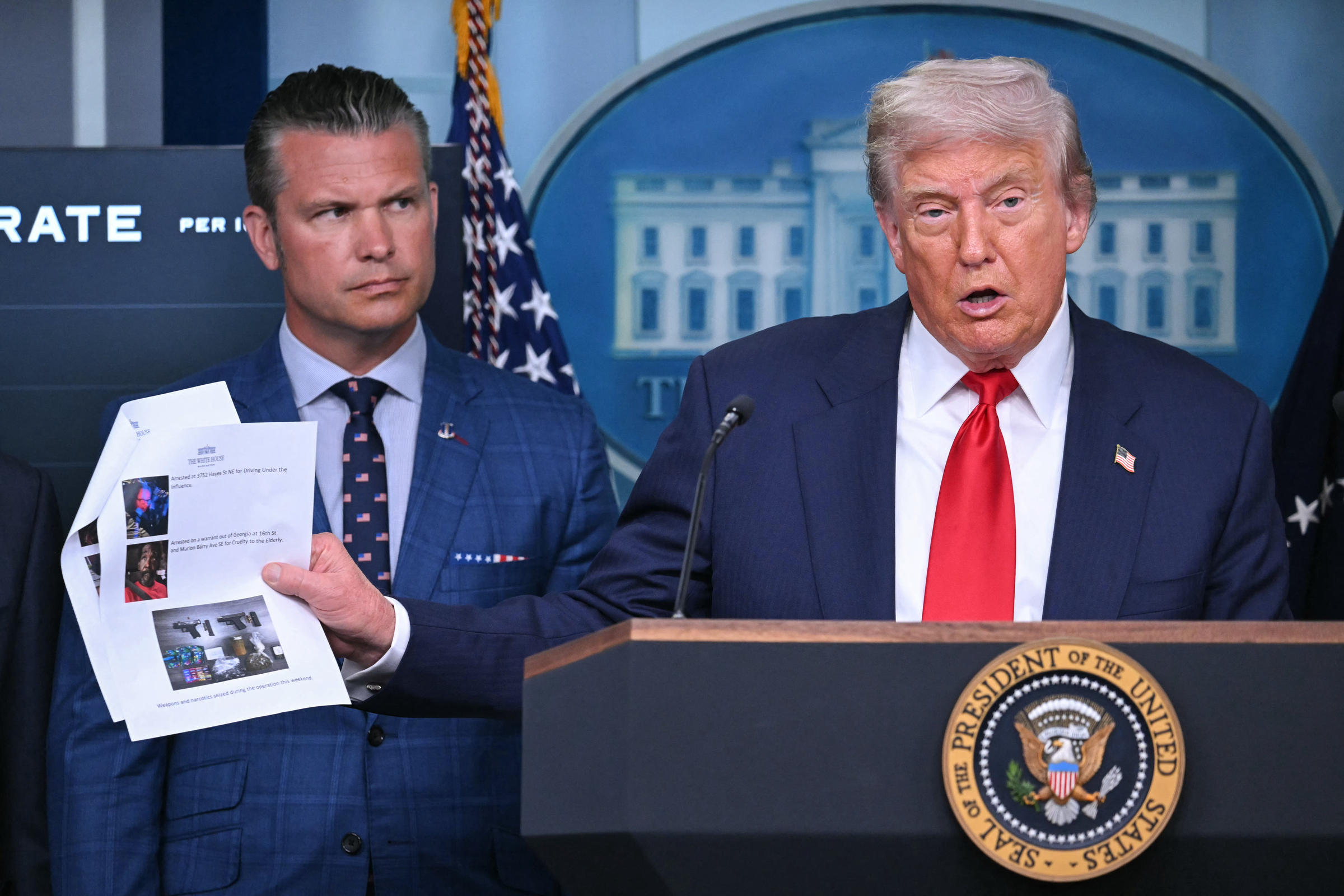 |
U.S. President Donald Trump (right) and Secretary of Defense Pete Hegseth at the White House on 11/8. Photo: AFP |
U.S. President Donald Trump (right) and Secretary of Defense Pete Hegseth at the White House on 11/8. Photo: AFP
It remains unclear whether Trump's efforts will succeed, as renaming government departments is rare in the U.S. and requires congressional review.
Trump benefits from a narrow Republican majority in both houses, and no Republican lawmakers have voiced opposition yet. Representative James Comer, a Trump ally, introduced a bill to streamline the process for the president to restructure and rename government agencies.
The renaming also raises concerns about the estimated tens of millions of USD in costs associated with changing signage and paperwork at the Department of Defense and U.S. bases worldwide. Critics argue the plan is not only costly but also an unnecessary distraction for the Pentagon.
Katherine Kuzminski, director of the policy institute at the Center for a New American Security (CNAS), believes the renaming wouldn't affect the authority or structure of the Department of Defense.
"However, the change in terminology could complicate Hegseth's efforts to shape the Department of Defense's role regarding domestic missions. Continued deployment of the National Guard for border security or immigration enforcement under the name 'Department of War' could create political, perceptual, or legal challenges compared to 'Department of Defense'," Kuzminski noted.
Nhu Tam (Washington Post, AFP, Newsweek)



